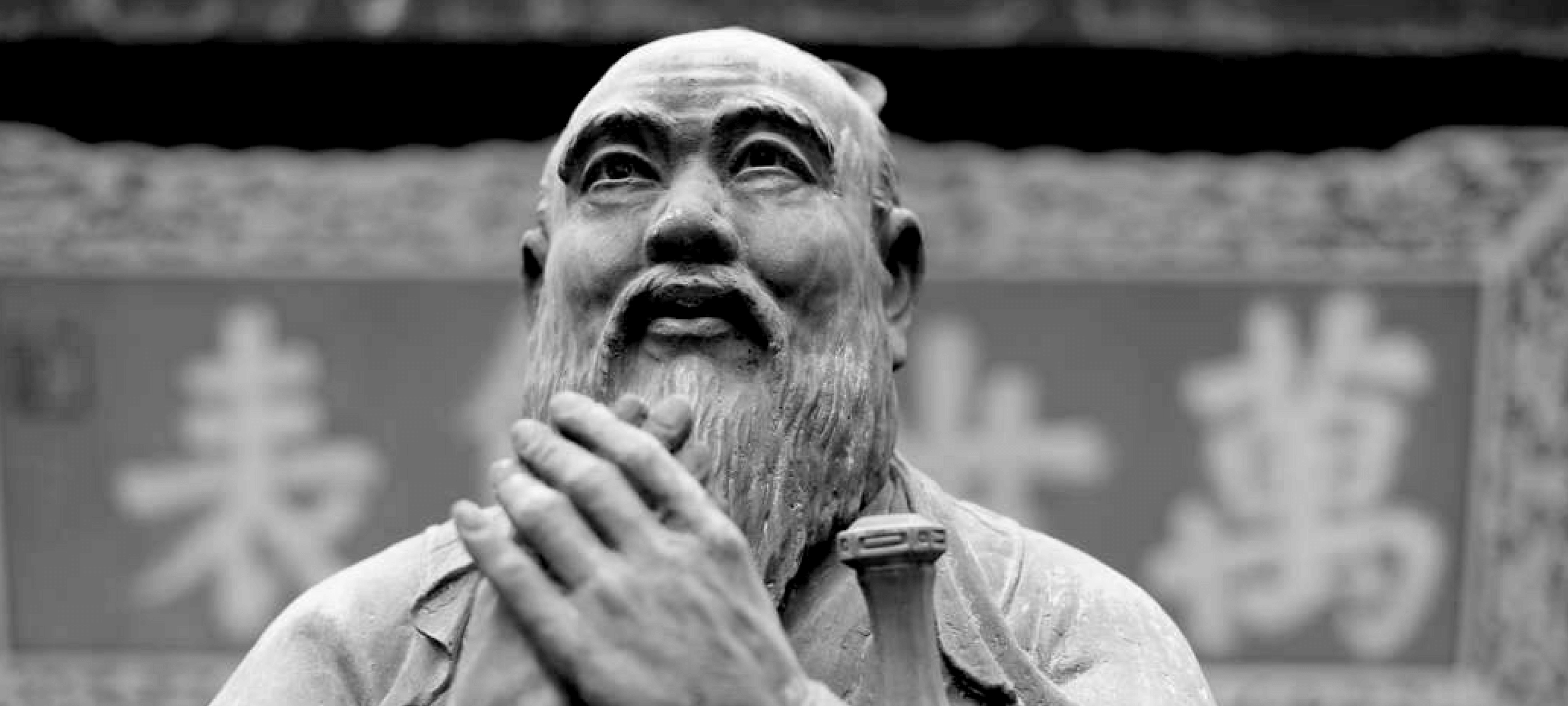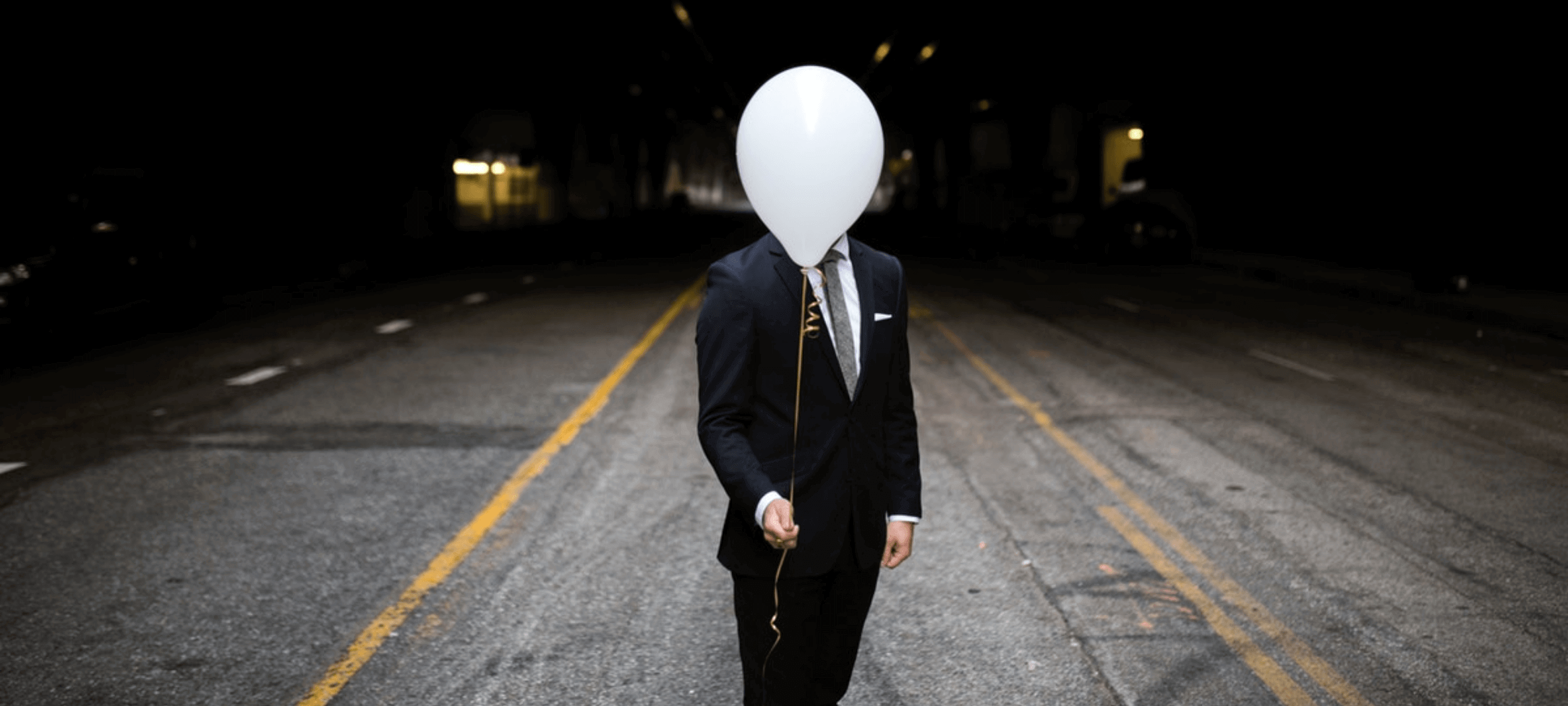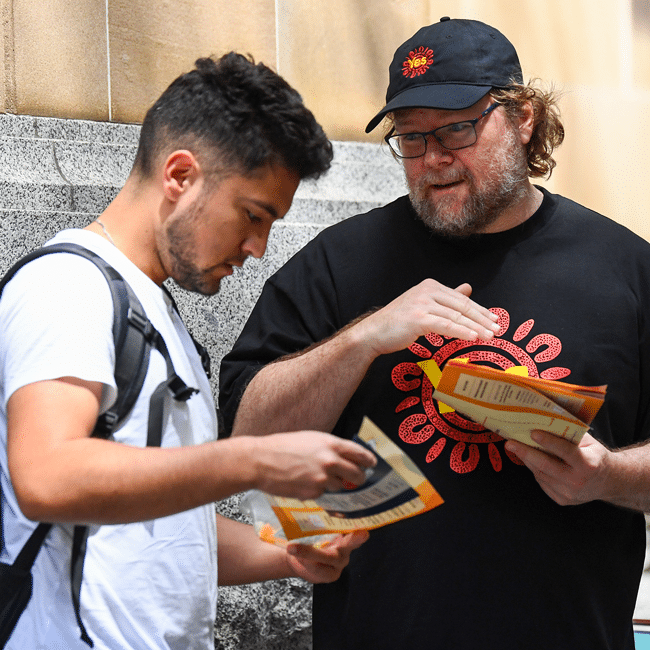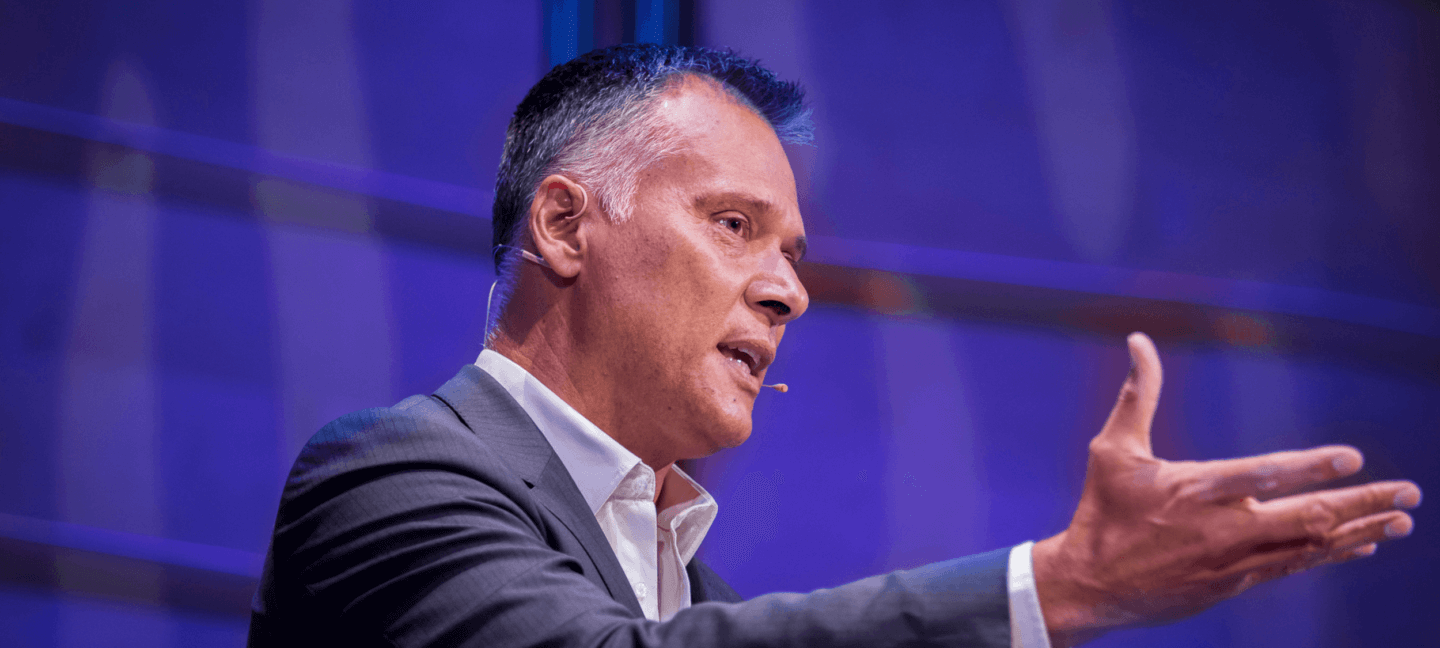So your boss installed CCTV cameras

So your boss installed CCTV cameras
Opinion + AnalysisBusiness + LeadershipRelationships
BY The Ethics Centre 28 JUN 2018
Meet Sophie. As the Head of Human Resources in her organisation, she begins to doubt the integrity of her management team when CCTV cameras are installed throughout her workplace with little warning. Sophie has made an appointment to speak with an Ethi-call counsellor.
In what follows, a highly trained counsellor responds to a fictional yet typical dilemma faced by callers who use The Ethics Centre’s free helpline, Ethi-call. Please note, this is not a substitute for an Ethi-call counselling session. It will give you an idea of what to expect if you ever need to use the service.
The counselling session
Sophie: I’ve never come across a situation like this in my 20 years as a HR professional. We are on the edge of a culture crisis and I’m not sure who I can trust.
Recently, a staff member was verbally assaulted by a trespasser on business premises outside of business hours. The victim felt it wasn’t serious enough to warrant legal intervention but he agreed with our workplace it wasn’t harmless enough to shrug off. Wishing to be seen as responsive to the event, management responded without my consultation by installing CCTV cameras inside and outside the office. Their reaction was quick and they did not have a specific policy to guide the decision. Staff arrived at work on Monday to find cameras on the premises without any explanation.
Ethi-call: As head of HR, how does your role fit within your organisation?
I look after the people in the organisation by implementing the HR policies of the business under the direction of general management. I’m a go to person for employees with workplace issues, advocating for staff in situations where they’ve been taken advantage of. I’m trusted by my peers. I’m the messenger for management, but most decisions I share are not mine and at times I even disagree with them. I’ve worked hard to build a culture of transparency and an environment where all staff can speak up.
Ethi-call: What’s the purpose and values of your organisation?
We exist for our customers and shareholders. We value honesty, safety, innovation, and recognition. But I feel the management team has traded honesty for safety in their latest decision.
Ethi-call: In your industry and HR, are there professional standards or a professional body that might be of relevance to this situation?
Yes, there is the Australian HR Institute, which has a professional code of ethics and professional conduct, plus my organisation also has a national peak body. I’ve phoned because it states I should lead others by modelling competent and ethical behaviour but in this situation I’m not sure what that is.
Ethi-call: What obligations do organisations have in relation to employee safety and privacy and where does your organisation fit?
Our privacy policy meets accepted industry standards. People know we can access their emails at any time and activity on our network isn’t private. People are aware about some privacy compromises. That being said, it’s certainly not an expressed part of company policy that we can film and monitor staff in the office.
As for safety, we have a duty of care to our employees and follow required WHS measures. It’s our responsibility to provide a safe workplace.
Ethi-call: Are you aware of any other organisations who have installed CCTV cameras in this way? What did they do?
This is part of the problem. I’m not sure of any business in this industry who has installed cameras in this way. It’s not like we’re a retail or security focused business. I need to seek advice from industry representatives. Maybe even a lawyer….
I want to believe the management team have our best interests at heart but now I’m not sure. Usually when there are big changes in our organisation, we consult with our staff and bring them on the journey with us.
To make matters worse, recent discussions about staff redundancies in the new financial year have leaked through the organisation.
Ethi-call: How would you describe your relationships with staff?
Staff trust me and I’m glad they do. I value the people around me, because without them the organisation would not exist. But I don’t feel comfortable being the mouthpiece for a management team whose motives in installing the cameras may be more sinister.
Ethi-call: What do you normally do when you don’t agree with the decisions of the management team?
Sometimes I speak up and sometimes I don’t. I draw on my HR expertise and my position in the organisation which helps me facilitate open conversations.
I thought we had a culture of transparency and consultation so I’m shocked I wasn’t consulted before this decision was made. Clearly this has implications on staff and my role as a leader in their HR team, given its potential to negatively impact the organisation and our culture. Maybe they thought they were doing the right thing, but it feels like they might be using the assault as an excuse to monitor employees disingenuously.
Ethi-call: You’ve said staff rumours are fearing the cameras will be used for more than security. Do you know for a fact if the cameras will be used for the staff review?
I don’t know this for sure. I completely understand everyone’s concerns though. My gut tells me they might be right. A while back, some employees had their emails audited to support the termination of their contracts. So, while I’m making assumptions at this point, I can’t help but think management has a history of using data in a way that undermines fairness in the workplace. But it’s just not clear yet if a lack of transparency in this instance mean questionable or bad intentions.
Ethi-call: So, what do you think is the purpose of security camera’s in an organisation?
I’ve been told the purpose is to protect the assets of the business, be it staff or equipment. This is a good thing, clearly, but there should be a clear privacy policy around access and use of recordings. It’s also very important the company be transparent when introducing new security measures – like cameras – into the workplace.
So what did Sophie take away from the call?
The conversation with the Ethi-call counsellor made me better understand my professional identity and what values I want to uphold – both within the organisation and in my profession. I have promised to engage and support the staff, but I feel I need to do a little bit more research on this and seek the advice of a trusted advisor before I act.
I feel strongly that if I want to maintain my professional integrity and the trust of my colleagues I can’t sit back and do nothing. I also expect the management team to live the values of the organisation as well and I should be courageous enough to have this conversation with them too.
Ethi-call is a free national helpline available to everyone. Operating for over 25 year, and delivered by highly trained counsellors, Ethi-callis the only service of its kind in the world. Book your appointment here.
Follow The Ethics Centre on Twitter, Facebook, Instagram and LinkedIn.
Ethics in your inbox.
Get the latest inspiration, intelligence, events & more.
By signing up you agree to our privacy policy
You might be interested in…
Opinion + Analysis
Relationships, Society + Culture
The Bear and what it means to keep going when you lose it all
Opinion + Analysis
Health + Wellbeing, Relationships
Mutuality of care in a pandemic
Opinion + Analysis
Business + Leadership
How to deal with an ethical crisis
Opinion + Analysis
Politics + Human Rights, Relationships
Is it wrong to care about Ukraine more than other wars?
BY The Ethics Centre
The Ethics Centre is a not-for-profit organisation developing innovative programs, services and experiences, designed to bring ethics to the centre of professional and personal life.
If women won the battle of the sexes, who wins the war?

If women won the battle of the sexes, who wins the war?
Opinion + AnalysisRelationships
BY Gordon Young The Ethics Centre 26 JUN 2018
Only two years ago, I said the question of feminism’s success was over. Sure, there was still plenty of mopping up to do – ingrained practices and subconscious beliefs that needed to be rooted out – but the war was won. Feminism was now the socially and institutionally accepted norm in the developed world. Everything else was just details.
As you can imagine, I’m no longer so sure of that stance.
The Trump era demonstrates that for many, the war is far from over. Whether we’re talking about the Men’s Rights Movement, hypermasculine pick-up artists, or the extremist fringe Incel movement, a resurgence of anti-feminist sentiment in recent years raises some serious concerns for the future of the debate.
Sociological analysis of platforms such as YouTube, Reddit, and 4chan have noted that – quite contrary to the overall changes to social norms – anti-feminist sentiments appear to be resurgent in online forums. Feminist campaigners and scholars have approached this issue by attempting to demonstrate the feminist goals of dismantling gender roles and toxic masculinity are beneficial to men too, not just women. In spite of their efforts, anti-feminist sentiments are re-emerging in ‘real world’ political and social discourses.
But I believe that such approaches to this debate miss a key factor that underlines this revival of patriarchal masculinity.
“In the battle of the sexes, there can only be one winner. And it wasn’t men.”
Competing for power
For women, the development of feminism was an experience of expanding freedom, autonomy, and the right to both. Restrictive ideals of ‘feminine’ careers and pursuits were slowly dismantled, economic mobility and independence was gradually wrested from the patriarchy, and both political freedom, and the recognised right to that political freedom, became enshrined in law and the policy of private companies.
While nobody can reasonably deny this hard-earned progress towards equal rights was the ethical imperative, we should recognise that this newly-won power for women came from somewhere. It came from men.
If we understand power as the ability for an individual or group to control their circumstances, and if that power within a given context cannot be shared, it must instead be competed for by the parties involved. And while women have had every justification in seeking their fair share of power in order to control their circumstances, seeing their public role in the world burgeon as a result, this same process has seen men’s shrink.
In the space of one generation they have gone from the undisputed leaders of society and the family unit, to adrift in a sea of uncertainty as the new world order of equal rights asserts itself.
The Incel movement – “involuntarily celibate”
All of this is nicely illustrated by the emergence of the Incel subculture. ‘Incel’ is an abbreviation for ‘involuntarily celibate’. It is a community comprised of young men who feel that sex – or even the opportunity for sex – has been denied to them by women, both individually and collectively. The layers of psychology surrounding this are many and complex, as captured in excellent detail in this piece by philosopher Amia Srinivasan. But while it is both easy and accurate to describe a perceived entitlement to sex as severely problematic, doing so ignores one very important reality: in many regards, men used to have that power.
Even as recently as the 1990s, a masculine trope where men were responsible for providing for and protecting their families was still quite well established. They were told they should be upright, decent, considerate, and strong. And in return for all of this, they would attract female partners who would recognise these qualities, and those female partners would reward them with sex.
Needless to say, this is an incredibly simplistic and largely inaccurate perception of traditional gender roles, ignoring as it does the vast number of people that did not experience this simple equation or who were victimised by it. But the fact remains it was also somewhat true. Where strict gender roles are enforced by society, a man is offered a very simple formula to follow to get female companionship and/or sex. Fulfil the traditional role of a ‘man’ and women would inevitably seek out your company – usually because their traditional role as ‘women’ meant they had few other options.
The rise of feminism has seen increased freedom and opportunity for both genders, but while it saw the role of women grow, it also saw this traditionally dominant role for men shrink. Many men have seen this as an opportunity to grow beyond the old restraints of masculinity, but others have found themselves adrift, lacking even the old traditional guidelines to tell them what their purpose is and how they should conduct themselves.
“Masculinity today is in crisis. Old ways for men to understand themselves, their role and their purpose, have fallen apart.”
Faced with the potentially colossal existential crisis this presents them with, many men are turning to reactionary anti-feminist movements in psychological self-defence, preferring to externalise their crisis into a fightable enemy rather than undertake the daunting task of creating a new and better self – a project which by its very nature must be undertaken alone and is often very painful. The question before us is what we can offer those seeking an identity in this new, dynamic age that can provide that precious sense of self, which doesn’t also depend on unrighteous dominance over others.
This question is neither the fault, nor the responsibility of women. But faced with the reality of a resurgence in patriarchal political sentiment, it is a problem that feminists and their allies are forced to deal with – whether we like it or not.
Ethics in your inbox.
Get the latest inspiration, intelligence, events & more.
By signing up you agree to our privacy policy
You might be interested in…
Opinion + Analysis
Health + Wellbeing, Relationships
How to break up with a friend
Opinion + Analysis
Health + Wellbeing, Relationships
How to deal with people who aren’t doing their bit to flatten the curve
Opinion + Analysis
Health + Wellbeing, Relationships
The etiquette of gift giving
Opinion + Analysis
Health + Wellbeing, Relationships, Science + Technology
Hallucinations that help: Psychedelics, psychiatry, and freedom from the self
BY Gordon Young
Gordon Young is a lecturer on professional ethics at RMIT University and principal at Ethilogical Consulting.
BY The Ethics Centre
The Ethics Centre is a not-for-profit organisation developing innovative programs, services and experiences, designed to bring ethics to the centre of professional and personal life.
Ethics Explainer: Perfection

We take perfection to mean flawlessness. But it seems we can’t agree on what the fundamental human flaw is. Is it our attachment to things like happiness, status, or security – things that are about as solid as a tissue? Our propensity for evil? Or is it our body and its insatiable appetite for satisfaction?
Four different philosophical traditions have answered this in their own ways and tell us how we can achieve perfection.
Platonism
Plato’s idea of perfection is articulated in his Theory of Forms. The Forms represent the abstract, ideal moulds of all things and concepts in existence, rather than actual things themselves. In short, the idea of something is more perfect than the tangible thing itself.
Take ‘red’ for example. Each of us will have a different understanding of what this means – red lipstick, a red brick house, a red cricket ball… But these are all different manifestations of red so which is the perfect one? For Platonists, the perfect, ideal, universal ‘red’ exists outside of space and time and is only discoverable through lots and lots of philosophical reflection.
Plato wrote:
He will do this [perceive the Forms] most perfectly who approaches the object with thought alone, without associating any sight with his thoughts, or dragging in any sense perception with his reasoning, but who, using pure thought alone, tries to track down each reality pure and by itself, freeing himself as far as possible from eyes, ears, and in a word, from the whole body, because the body confuses the soul and does not allow it to acquire truth and wisdom whenever it is associated with it.
In Platonist thought, the body is a distraction from the abstract thought necessary for philosophical speculation. Its fundamental flaw? Its carnal desires that shackle the soul.
Perfection for the individual, to sum up, is the arrival back to the soul’s state of pure contemplation of the Forms. This out of body state of contemplation is far from the idea of the perfect face and physique we often think about today. Indeed, a perfect physical form for Palto is impossible. It is all in the imagination.
Hinduism
In Hinduism’s Advaita school of philosophy, perfection means the full comprehension and acceptance of Oneness.
It’s when you realise your soul (or your atman) is the same as everyone else’s and you are all part of the one, unchanging, metaphysical reality (the Brahman). In this state of realisation, the always changing, material world of maya reveals itself to be an illusion and anything attached to this world, including your actions, are illusions as well. (There are parallels with this and the idea of Plato’s Cave, which is narratively conceived of in The Matrix.)
To attain this status of perfection, an individual must surrender to their caste role and perform that duty to excellence. No matter what they did, they would understand their actions had no effect on the Brahman and to believe so, was a trick of the ego. They focused on renouncing all earthly desires and striving to become completely detached from the world through the specific rituals of their caste role.
Krishna said:
A man obtains perfection by being devoted to his own proper action. Hear then how one who is intent on his own action finds perfection. By worshipping him [Brahman], from whom all beings arise and by whom all this is pervaded, through his own proper action, a man attains perfection … He whose intelligence is unattached everywhere, whose self is conquered, who is free from desire, he obtains, through renunciation, the supreme perfection of actionlessness. Learn from me, briefly, O Arjuna, how he who has attained perfection, also attains to Brahman, the highest state of wisdom.
By “actionlessness”, Krishna means the supreme effort of surrendering everything, including your own actions, so they become “non-action”. If everything is an illusion in the face of Brahman, we mean everything.
Christianity
A sainted bishop named Gregory of Nyssa classified perfection as being and acting just like God’s human form, Christ – that is, completely free of evil. Nyssa said:
This, therefore, is perfection in the Christian life in my judgement, namely, the participation of one’s soul and speech and activities in all of the names by which Christ is signified, so that the perfect holiness, according to the eulogy of Paul, is taken upon oneself in “the whole body and soul and spirit”, continuously safeguarded against being mixed with evil. Perfection lies in the total transformation of the individual. He/she must live, act, and essentially, be all that Christ was, meaning that, as Christ was God manifest in human form, completely free from evil, so too the Christian individual must sever all evil from his/her being.
While the Socratic ideal of perfection requires pure “abstract” thought, and the Hindu ideal requires sublimating individualism into Oneness, the Christian ideal requires cultivating the characteristics of Christ and expelling all that is unlike him from yourself.
Sufism
The Sufi scholar Ibn ‘Arabi had a concept of perfection that echoes the three discussed above. For him, perfection is the individual’s complete knowledge of the abstract and the material, leading to a prophetic (or Christ like) character.
Let’s break that down. He says:
The image of perfection is complete only with knowledge of both the ephemeral and the eternal, the rank of knowledge being perfected only by both aspects. Similarly, the various other grades of existence are perfected, since being is divided into eternal and non-eternal or ephemeral. Eternal Being is God’s being for Himself, while non-eternal being is the being of God in the forms of the latent Cosmos.
The beginning of the passage states that perfection requires knowledge of the eternal and the material. The eternal is God in Himself, and the non-eternal is the Cosmos, including humanity, who in striving for the perfection of the eternal, expresses it.
But Ibn ‘Arabi stresses neither of these knowledges negate the other. In fact, by learning only of the eternal, or only of the material, both would be incomplete since they are simply different manifestations of the same Being. Perfection, then, is not about negation – but continual striving to transformation. Onwards and upwards!
Follow The Ethics Centre on Twitter, Facebook, Instagram and LinkedIn.
Ethics in your inbox.
Get the latest inspiration, intelligence, events & more.
By signing up you agree to our privacy policy
You might be interested in…
Opinion + Analysis
Health + Wellbeing, Relationships
Australia’s paid parental leave reform is only one step in addressing gender-based disadvantage
Opinion + Analysis
Relationships
How to respectfully disagree
WATCH
Relationships
Purpose, values, principles: An ethics framework
Opinion + Analysis
Relationships, Society + Culture
Beyond cynicism: The deeper ethical message of Ted Lasso
BY The Ethics Centre
The Ethics Centre is a not-for-profit organisation developing innovative programs, services and experiences, designed to bring ethics to the centre of professional and personal life.
Big Thinker: Jelaluddin Rumi

“The pen would smoothly write the things it knew, but when it came to love it split in two, a donkey stuck in mud is logic’s fate – Love’s nature only love can demonstrate.” – Rumi
Rumi (1207—1273) has long been recognised as one of the most important contributors to Islamic literature and Sufism, the spiritual and mystic element of Islam. His enormous collection of mystical poetry is considered among the best that has ever been produced. His seminal text is the Masnavi, a six book poem written in rhyming couplets. It is so revered as an expression of Godly knowledge that it is referred to as “The Koran in Persian”.
What is Sufism?
To understand Rumi, you need to understand Sufism. It is often misrepresented as a sect, school, or deviant form of Islam but is better described as a distinct stream in Islamic spirituality. Sufism was first embodied by Muhammad and his early followers, then medieval scholars like Abu Hamid Al-Ghazzali, Ibn Arabi, and of course, Rumi.
Sufism is characterised by its focus on moral cultivation and establishing a personal connection to God through reforming, disciplining, and purifying the ego. It seeks to attain this intuition of God through disciplines that practice an austere lifestyle known as ascetism. One example of this is dhikr, a form of worship where you become absorbed in rhythmic repetitions of God’s name.
Sufism seeks a type of knowledge outside worldly intellect – one that is intuitive and is inextricably tied to the Divine.
Life of Rumi
Rumi, known in Iran and Central Asia as Mowlana Jalaloddin Balkhi, was born in 1207 in the province of Balkh, which is now the border region between Afghanistan and Tajikistan. His family left when he was a child shortly before Genghis Khan and his Mongol army arrived. They settled permanently in Konya, central Anatolia, which was formerly part of the Eastern Roman Empire. Rumi was probably introduced to Sufism through his father, Baha Valad, a popular preacher who also taught Sufi piety to a group of disciples.
The turning point in Rumi’s life came in 1244 when he met a wandering Sufi in Konya called Shamsoddin of Tabriz. Shams, as he was most often referred to by Rumi, taught him the most profound levels of Sufism, transforming him from a devout religious scholar to an ecstatic mystic.
Rumi died on 17 December 1273 shortly after completing his work on the Masnavi. His passing was deeply mourned by the citizens of Konya, including the Christian and Jewish communities. His disciples formed the Mevlevi Sufi order and named it after Rumi, whom they referred to as ‘Our Master’ (which translates to Mevlana in Turkish and Mowlana in Persian). They are better known in the West as the Whirling Dervishes, because of the distinctive dance they now perform as one of their central rituals.
Rumi’s death is commemorated annually in Konya, attracting pilgrims from all corners of the globe and every religion. The popularity of his poetry has risen so much in the last couple of decades that the Christian Science Monitor identified him as the most published poet in America in 1997 and UNESCO declared 2007 to be the Year of Rumi.
Overvaluing intellect
Rumi, like most Sufis, praised the intellect and considered its refinement a religious imperative. But he was clear about the types of knowledge he believed it could sufficiently possess. He considered o domain the sentimental and material world, not the theoretical and metaphysical one.
Rumi’s caution was this: when one relies solely on their own intellect to understand Being and Reality, they risk confining their understanding to a mortal and ultimately finite resource – themselves. He regarded it a folly of the ego to believe one’s intellect limitless and warned against reducing God to abstract puzzles in order to maintain that belief. Rumi scorned placing the intellect too high and pursuing knowledge for knowledge’s own sake.
“He knows a hundred thousand superfluous matters connected with the (various) sciences, (but) that unjust man does not know his own soul.
He knows the special properties of every substance, (but) in elucidating his own substance (essence) he is (as ignorant) as an ass.” – Rumi
The transcendence of man
So, if intellect isn’t enough, what is? Rumi would say, ‘Divine love.’
This divine love can also be translated as grace or friendship with God. In the Islamic worldview, humanity is unique in its capacity to autonomously know God, and this gives people an honoured status. Even so, no human can achieve divine love out of their own efforts. They can only be granted it.
Rumi was of the view that seeking essential knowledge – knowledge about the essence of humanity – was a way one might be granted divine love. It was the best type of knowledge, because it was tied to questions of meaning, purpose, and death. In other words, knowing yourself was a means of knowing God.
According to the Sufis, knowledge of God comes in three levels: material, conceptual, and experiential. Think of it as the different between knowing an apple exists, reading a detailed Wikipedia page about it, and eating one in the flesh. All three are different forms of knowing what an apple is – but each deepens in understanding. The last level is transformative in a way the other two are not. Try explaining what an apple tastes like to someone who has never had one. You may come very close, but they will never know what you mean unless they take a bite themselves.
Likewise, the Sufis believed that the highest knowledge of God was something that could only be experienced. To read and contemplate upon God or the universe was one thing. But experiencing God was something totally different, something impossible to intellectualise.
Rumi believed manifesting the four virtues – courage, wisdom, and temperance, which when balanced, lead to perfect justice, the fourth virtue – would lead to some form of transcendence above the hubbub of life’s claims and counterclaims. But when every human being’s views cannot be divorced from their experience, how was this possible?
For Rumi, this highlighted humanity’s dependence on God. Only a friend of God, or Wali, could be objective enough to see truth and loving enough to be just.
Ethics in your inbox.
Get the latest inspiration, intelligence, events & more.
By signing up you agree to our privacy policy
You might be interested in…
Opinion + Analysis
Relationships
We need to talk about ageism
Big thinker
Health + Wellbeing, Relationships
Big Thinker: Temple Grandin
Opinion + Analysis
Climate + Environment, Politics + Human Rights, Relationships
This is what comes after climate grief
Opinion + Analysis
Relationships
Putting the ‘identity’ into identity politics
BY The Ethics Centre
The Ethics Centre is a not-for-profit organisation developing innovative programs, services and experiences, designed to bring ethics to the centre of professional and personal life.
The #MeToo debate – recommended reads

The #MeToo debate – recommended reads
Opinion + AnalysisRelationshipsSociety + Culture
BY Kym Middleton The Ethics Centre 31 MAY 2018
IQ2 Australia and Vivid Ideas debated whether, ‘#MeToo has gone too far’. Here is a curated snapshot of the public conversation – just in case you’ve had your head in the sand.
Article
Harvey Weinstein Paid Off Sexual Harassment Accusers for Decades
New York Times
Jodi Kantor and Megan Twohey
5 October 2017
This is the article that broke the Harvey Weinstein story. While it’s now internationally infamous, it is well worth reading to understand how strong the structures that protected Weinstein were. It includes his first official response.
Video
TIME Person of the Year 2017: The Silence Breakers
TIME
Diane Tsai, Spencer Bakalar, Julia Lull [producers]
6 December 2017
Dishwashers, Hollywood stars, academics, hotel staff, journalists, an engineer, and even a senator feature in this short video by TIME of people speaking up against sexual harassment.
Article
I went on a date with Aziz Ansari. It turned into the worst night of my life
babe.net
Katie Way
13 January 2018
This piece wins the title of ‘Most Divisive Contribution to the #MeToo Movement’. It is both celebrated as a precise example of young women’s damaging sexual experiences and scorned for undermining #MeToo by lacking journalistic integrity and conflating “bad sex” with assault.
Article
The Humiliation of Aziz Ansari
Caitlin Flanagan
The Atlantic
14 January 2018
This response to the babe.net article labels it “3,000 words of revenge porn”. Ouch. It highlights the generational differences in attitudes to sex and feminist values that has been underpinning the #MeToo debate.
A separate yet notable moment in the generational rift between women over #MeToo was when Katie Way, the 22 year old author of the Ansari article called Ashleigh Banfield, a 50 year old female news anchor who criticised her piece, “that burgundy lipstick bad highlights second-wave feminist has-been”.
Article
Want #MeToo to serve justice? Use it responsibly
Michael Salter
ethics.org.au
31 January 2018
IQ2 guest Michael Salter is an expert in trauma, gendered violence, sexual abuse, and social media. He reflects on how the #MeToo movement can retain potency and serve justice.
Here seems a good space to explain why we invited two men to be part of this debate – Michael Salter and Benjamin Law. It’s an approach some people disagree with. The Ethics Centre and Vivid Ideas felt the conversation would benefit if both women and men took part and speak with another.
Podcast
Has #MeToo Gone Too Far, or Not Far Enough?
Waleed Aly & Scott Stephens
The Minefield
7 March 2018
A favourite ethicist of ours Scott Stephens poses a key challenge to the #MeToo movement: are we comfortable for this revolution to take innocent people as collateral damage?
It’s a question Teen Vogue columnist Emily Lindin answered with her controversial tweet, “If some innocent men’s reputations have to take a hit in the process of undoing the patriarchy, that is a price I am absolutely willing to pay”.
Video
The Feed SBS VICELAND
Jeanette Francis
“Lads, it’s time to admit if you’ve been gross.” IQ2 guest and TV journalist Jeanette Francis, aka Jan Fran, asks why there isn’t a #MeToo hashtag for men, the ‘doers’ of the harassing. This little video package with its provocation and stats on sexual harassment is a finalist in the mid-year Walkley awards.
Watch the IQ2 debate here: ‘#MeToo has gone too far’
Libby-Jane Charleston & Michael Salter vs Jan Fran & Ben Law
A collaboration between The Ethics Centre and Vivid Ideas
Ethics in your inbox.
Get the latest inspiration, intelligence, events & more.
By signing up you agree to our privacy policy
You might be interested in…
Explainer
Relationships, Society + Culture
Ethics Explainer: Ethical non-monogamy
Opinion + Analysis
Relationships
Now is the time to talk about the Voice
Explainer
Relationships
Ethics Explainer: Ad Hominem Fallacy
Opinion + Analysis
Relationships, Society + Culture
Yellowjackets and the way we hunger
BY Kym Middleton
Former Head of Editorial & Events at TEC, Kym Middleton is a freelance writer, artistic producer, and multi award winning journalist with a background in long form TV, breaking news and digital documentary. Twitter @kymmidd
BY The Ethics Centre
The Ethics Centre is a not-for-profit organisation developing innovative programs, services and experiences, designed to bring ethics to the centre of professional and personal life.
Is modesty an outdated virtue?

Is modesty an outdated virtue?
Opinion + AnalysisRelationships
BY Kym Middleton The Ethics Centre 22 MAY 2018
Beachgoers would have noticed our lucky country has been hit with a rather European trend. Or is it South American?
Women and girls of all ages and shapes were donning g-string swimsuits and Brazilian bottoms. Arse cheeks were out and as sun-kissed as a brown forearm, curiously suggesting they had never been covered up. Insert thinking emoji face here.
If conversations and interactions underneath Instagram posts are anything to go by, people seem to care a lot about this newish oceanside fashion. People have been looking and commenting and rubbernecking and commenting some more. Was that the sound of a drone hovering over the group of young women lying belly down on the sand?
“Whether a bit more butt cheek is nudity or not, our different reactions to the sight of peach shaped posteriors reflect so much on our different ideas of bodies, gender, and sexuality.”
Whether a bit more butt cheek is nudity or not, our different reactions to the sight of peach shaped posteriors reflect so much on our different ideas of bodies, gender, and sexuality. Australia is one of the most diverse countries in the world, so it makes sense some sort of overarching cultural attitude to how much skin we should show doesn’t exist. Even individuals will sometimes revere and scorn the sight of skin – context is everything.
Nudity can be a beautiful thing. It’s darn delightful to see the kids running around the backyard in the nutter on a hot day as the sprinkler runs, free of all the bodily self-consciousness that will hit them in adolescence. Such sweet, innocent freedom.
But by the time we’re all growed up, we’re sexual beings and our bods better be covered or it’s just down right creepy – unless you’re at the beach of course. It’s often said women are more free to dress how they like in any environment but even a boringly functional shoulder on a hot summer’s day is wildly inappropriate in some workplaces. Then again, imagine a man exposing his knees by wearing shorts in a corporate environment or strutting into the boardroom in flip flops.
Shoulders, knees and toes, so risqué. No wonder people love to get semi-nude when they’re near sand and saltwater. The working week’s uniform is so prudish when compared with the itsy bitsy teenie weenie things we’re permitted to sport in public at the beach. And perhaps that’s the beauty of this summer’s bare butt trend – a liberation of the social and cultural expectations most are happy to play along with but only for limited week day bursts.
Maybe it’s the influence of Kim Kardashian’s glorious glutes. Maybe HBO started the nudity thing years ago – Australians tend to follow northern hemisphere trends a season or more later. Maybe it isn’t about popular culture at all and it’s just that women want more skin tanned and are seeing it’s now acceptable. Could we stretch this to a health argument by bringing up vitamin D? Or is it just that despite the good advocacy work of the Cancer Council, people can’t resist the warm, fuzzy feeling of sunrays touching their arse?
“On one hand, you could argue the butt cheek trend is marking a positive social shift in attitudes to women’s bodies – one where we’re less concerned about the shape or size of anyone’s booty.”
On one hand, you could argue the butt cheek trend is marking a positive social shift in attitudes to women’s bodies – one where we’re less concerned about the shape or size of anyone’s booty and getting it out there shows women and girls in particular aren’t as hung up about their physical selves as we once believed.
On the other hand, you could argue this is a submission to sexism. Plenty of people don’t like to see women and girls enjoying their bodies this way. While arguments in favour of modesty can attract accusations of a controlling type of chauvinism, they are often made in defence of women’s liberty. Why must the so called fairer sex feel an obligation to display so much skin? Can’t women and girls have fun in the sun without feeling they need to sexualise themselves? Is all this bum display a nasty product of patriarchy getting its insidious tentacles into our beachside R&R?
I descend from a people not known for bodily inhibitions. If Hungarians aren’t presented with a sign in public baths telling them to don swimwear, the only suit necessary is the one your mama gave you. Some baths even supply disposable coverings for men and women’s nether regions in case they forget to pack something (although I suspect there are a few Magyars who don’t own a cozzie).
The other side of my family values dressing modestly in public. Headscarves are worn to social gatherings and ankles covered. Someone walking bare butt into a space, let alone naked, is unimaginable.
So, do we care which direction Australian beaches head? And how does a culturally diverse country make a general rule around appropriate levels of dress?
Ethics in your inbox.
Get the latest inspiration, intelligence, events & more.
By signing up you agree to our privacy policy
You might be interested in…
Opinion + Analysis
Politics + Human Rights, Relationships
Whose home, and who’s home?
Opinion + Analysis
Relationships, Science + Technology
With great power comes great responsibility – but will tech companies accept it?
Opinion + Analysis
Politics + Human Rights, Relationships
Do Australia’s adoption policies act in the best interests of children?
Opinion + Analysis
Health + Wellbeing, Relationships
Living well or comfortably waiting to die?
BY Kym Middleton
Former Head of Editorial & Events at TEC, Kym Middleton is a freelance writer, artistic producer, and multi award winning journalist with a background in long form TV, breaking news and digital documentary. Twitter @kymmidd
BY The Ethics Centre
The Ethics Centre is a not-for-profit organisation developing innovative programs, services and experiences, designed to bring ethics to the centre of professional and personal life.
Will I, won’t I? How to sort out a large inheritance

Will I, won’t I? How to sort out a large inheritance
Opinion + AnalysisRelationships
BY Sally Murphy The Ethics Centre 21 MAY 2018
Torn between rights and obligations, a long-suffering widower agonises over how to divvy up his assets, while an aunt’s growing nest egg is in danger of being squandered. This month we are talking about inheritance on Ethi-call.
Disclaimer: The cases shared here are fictional accounts of typical dilemmas faced by callers who use The Ethics Centre’s free helpline Ethi-call. This is not a substitute for an Ethi-call counselling session.
Inheritance is a sticky issue. No matter your role – the writer of the will, the executor, the recipient, or the advisor – each individual has a view of how important justice, fairness, obligations, or rights are in making their decisions. If you’re lucky, these views are shared among all involved. At Ethi-call, The Ethics Centre’s free counselling service for ethical dilemmas, we know they usually aren’t.
Take this typical scenario:
Peter is a widower with two children in their late 40s. His daughter is a university educated high earner with a husband and two children. His son doesn’t have qualifications and although he works hard, he changes jobs frequently, never having found a satisfying career path. He is divorced and also has two children.
Peter has a degenerative disease and knows he will not live to see his grandchildren grow up. His will provides a 50/50 split of his assets between his children but he feels his son needs more help.
Peter tried talking with his daughter about this but she was upset he was considering treating them differently. She said she should not be penalised for her hard work and her brother is not entitled more because of his own life choices. Peter loves both his children and doesn’t want his daughter to feel undervalued. Some of his friends have even said she deserves more than half as a reward for the disciplined life she’s led. His wife who died four years ago wanted to make sure all her grandchildren were provided for generously and Peter wants his will to be fair, without causing pain or ill will. He just can’t see how he can achieve this. He is very distressed about the decision he has to make.
Ethics asks, “What ought one do?” I put to you, “What should Peter do?” He knows he must consider everyone who might be impacted by his decision and he has already identified the following:
- Wanting to be fair and equal to his children
- The capacity for inheritance to be perceived as a reward or punishment
- His role as a grandfather and the duty he feels to support his grandchildren
- An absolute desire to preserve his relationship with his children and their relationship with each other
If Peter were to contact Ethi-call, some questions he might be asked include:
- What is the purpose of a will?
- What has been your experience of receiving inheritance in the past and do you think it was handled well?
- What are the religious or cultural norms that guide your decisions in life?
There is no doubt his children may each desire different outcomes. But if he has to choose, what is most important to him when allocating his estate?
At least for Peter’s children, his final wishes will be sorted before he passes away. What if the writer of the will is already gone, and the family can only guess what the intentions were behind it?
Take this situation:
Before Sarah’s mother died, she said she wanted her young granddaughter Alexis to inherit a significant sum of money when she turned 18. She asked her only daughter Sarah, Alexis’ aunty, to be trustee of the funds until she turned 18 because Alexis’ father had passed away. Sarah’s investing has seen the funds grow significantly. Alexis’ maturity? Not so much.
Now months away from being eligible to receive her inheritance, Sarah is concerned about Alexis’ behaviour. She dropped out of school, is not working, and smokes a lot of pot. Sarah hopes this is just a phase but sees Alexis’ mum in her and worries it might just be her personality or chosen path.
Alexis and her mum struggle financially. Sarah has no idea how they get by and can see a cash injection could relieve pressure. But she is also concerned they won’t have the willpower, skills, or knowledge to look after the funds appropriately. She believes the signs show if Alexis doesn’t squander it, her mum will.
Sarah is torn between her duty to fulfil her mother’s wishes and her loyalty to her and her memory. She was a woman with a strong work ethic, who was dedicated to growing her personal wealth through prudence and patience. Sarah has every intention of following the requirements of the will, but she is struggling with how much control she is entitled to. What ought Sarah do?
- Should she try and help Alexis learn about money management?
- Is it her right to make suggestions around how the money is invested or saved?
- Whose wishes matter most – Sarah’s deceased mother, Sarah as trustee, Alexis, or Alexis’ mother?
Sarah is a woman of integrity and will respect Alexis’ right to inherit the money. But is there a way she can fulfil her mother’s wishes and do the best she can to ensure Alexis respects her legacy?
Both of these fictional cases depict someone struggling with what to do in a situation. An Ethi-call counsellor will never tell someone what to do. Instead, they follow a framework developed by The Ethics Centre over the last 25 years. This framework is driven by a wide range of questions that can often help unpack a dilemma in a way that the caller was not able to do on their own. And while a counsellor may seem to ask a lot of questions at first, there is a reason for them.
Struggling with inheritance can feel like being inside the home of the loved one you have lost. Memories, treasures, and sentimental trinkets pull you in multiple directions. But every house has a door. And every dilemma has a beginning.
There is no magic dust to make what is difficult, easy. But Ethi-call can help you find relief with understanding. A counsellor’s impartial and expert advice can be a guiding hand through neglected corridors and cobwebbed cupboards. Sometimes, someone removed from the trauma of a loved one’s death is exactly who you need to help you make your way through what is one of life’s hardest challenges.
Tough decisions are part of being human. We can help. Let us show you how. Book your free Ethi-call session here.Sally Murphy is an Ethi-call counsellor and manager of education programs at The Ethics Centre.
Follow The Ethics Centre on Twitter, Facebook, Instagram and LinkedIn.
Ethics in your inbox.
Get the latest inspiration, intelligence, events & more.
By signing up you agree to our privacy policy
You might be interested in…
Opinion + Analysis
Relationships
Why learning to be a good friend matters
Opinion + Analysis
Relationships
Social media is a moral trap
Opinion + Analysis
Health + Wellbeing, Relationships
Duties of care: How to find balance in the care you give
Opinion + Analysis
Relationships, Society + Culture
In Review: The Festival of Dangerous Ideas 2018
BY The Ethics Centre
The Ethics Centre is a not-for-profit organisation developing innovative programs, services and experiences, designed to bring ethics to the centre of professional and personal life.
Big Thinker: Confucius

Big Thinker: Confucius
Big thinkerPolitics + Human RightsRelationships
BY The Ethics Centre 21 MAY 2018
Confucius (551 BCE—479 BCE) was a scholar, teacher, and political adviser who used philosophy as a tool to answer what he considered to be the two most important questions in life… What is the right way to rule? And what is the right way to live?
While he never wrote down his teachings in a systematic treatise, bite sized snippets of his wisdom were recorded by his students in a book called the Analects.
Underpinning Confucian philosophy was a deeply held conviction that there is a virtuous way to behave in all situations and if this is adhered to society will be harmonious. Confucius established schools where he gave lectures about how to maintain political and personal virtue.
“It is virtuous manners which constitute the excellence of a neighborhood.”
His ideas set the agenda for political and moral philosophy in China for the next two millennia and are emerging once again as an influential school of thought.
Humble beginnings
Confucius was born in 551 BC in a north-eastern province of China. His father and mother died before he was 18, leaving him to fend for himself. While working as a shepherd and bookkeeper to survive, Confucius made time to rigorously study classic texts of ancient Chinese literature and philosophy.
At the age of 30, Confucius began teaching some of the foundational concepts he formulated through his studies. He developed a loyal following and quickly rose up the political ranks, eventually becoming the Prime Minister of his province.
But at the age of 55 he was exiled after offending a higher ranking official. This gave Confucius an opportunity to travel extensively around China, advising government officials and spreading his teachings.
He was eventually invited back to his home province and was allowed to re-establish his school, which grew to a size of 3000 students by the time he died at age 72.
The golden age
Underpinning much of Confucius’ thought was a belief that Chinese society had forgotten the wisdom of the past and that it was his duty to reawaken the people, particularly the young, to these ancient teachings.
Confucius idealised the historical Western Zhou Dynasty, a time, he claimed, when living standards were high, people lived and worked in peace and contentment, the leaders carried out their duties in accordance with their rank, and the social order was stable and harmonious.
Confucius devoted his life to teaching the wisdom of this ancient society to his contemporaries in the hope of reinventing it in the present. For this reason, he didn’t claim to be an original thinker, but a receptacle of past wisdom. “I transmit but do not innovate”, he said.
Dao, de, and ren
While Confucius never wrote a systematic philosophical treatise, there are three intertwined concepts that run through his philosophy: Dao, De, and Ren.
Dao: Confucius interpreted Dao to mean a Way of living, or more specifically the right Way of living. This was not a concept he made up. It was already a central part of Chinese belief systems about the natural order of the universe. Dao is a slippery but profound concept suggesting there is a singular Way to live that can be intuited from the universe, and that all of life should be directed towards living this Way. If the Way is followed, the individual and society will be in perfect harmony.
De: Confucius saw De as a type of virtue that lay latent in all humans but that had to be cultivated. It was the cultivation of this virtue, Confucius believed, that allowed a person to follow the Way. It was in family life that people learned how to cultivate and practice virtuous behaviours. In fact, many of the main Confucian virtues were derived from familial relationships. For example, the relationship between father and son defined the virtue of piety and the relationship between older and younger siblings defined the virtue of respect. For this reason, Confucian ethics did not leave much room for an individual to exist outside of a family structure. Knowing where you stood in your family and your society was key to living a virtuous life.
Ren: While most Confucian virtues were cultivated within a strict social and family structure, ren was a virtue that existed outside this dynamic. It can be translated loosely as benevolence, goodness, or human-heartedness.
Confucius taught that the ren person is one who has so completely mastered the Way that it becomes second nature to them. In this sense ren is not so much about individual actions but what type of person you are. If you perform your familial duties but do not do so with benevolence, then you are not virtuous. Ren was how something was done, rather than the act itself.
Contemporary influence and relevance
Confucius’ influence on Chinese society during his life and in the two millennia since has been enormous. His sound bite like philosophies became China’s handbook on politics and its code of personal morality.
“He who exercises government by means of his virtue may be compared to the north polar star, which keeps its place and all the stars turn towards it.”
It wasn’t until Mao’s Cultural Revolution that some of the basic tenets of Confucian ethics were publicly denounced for the first time. Mao was future oriented and utopian in his politics, and so Confucius’ idea of governance and ethics based in the ancient classics was considered dangerous and subversive. In fact, Mao’s Red Guards referred to the old sage as “The Number One Hooligan Old Kong”.
But in the past decade, the Communist Party has realised Confucius’ teachings might be useful again. The surge of wealth that has accompanied free market capitalism in China has meant that many of Mao’s ideologies no longer make sense for the government. This has prompted a resurgence of State led interest in Confucius as an alternative ideological underpinning for the current government.
While this is seen by many as a way for China to build a political future based on its philosophical past, others feel that the Communist Party has emphasised Confucian ideas about hierarchical social structure and obedience, while sidelining notions of virtue and benevolence.
Follow The Ethics Centre on Twitter, Facebook, Instagram and LinkedIn.
Ethics in your inbox.
Get the latest inspiration, intelligence, events & more.
By signing up you agree to our privacy policy
You might be interested in…
Opinion + Analysis
Relationships, Society + Culture
Yellowjackets and the way we hunger
Opinion + Analysis
Politics + Human Rights, Relationships
Standing up against discrimination
Opinion + Analysis
Politics + Human Rights, Society + Culture
What comes after Stan Grant’s speech?
Explainer
Politics + Human Rights
Ethics Explainer: Social Contract
BY The Ethics Centre
The Ethics Centre is a not-for-profit organisation developing innovative programs, services and experiences, designed to bring ethics to the centre of professional and personal life.
Making friends with machines

Making friends with machines
Opinion + AnalysisRelationshipsScience + Technology
BY Oscar Schwartz The Ethics Centre 6 APR 2018
Robots are becoming companions and caregivers. But can they be our friends? Oscar Schwartz explores the ethics of artificially intelligent android friendships.
The first thing I see when I wake up is a message that reads, “Hey Oscar, you’re up! Sending you hugs this morning.” Despite its intimacy, this message wasn’t sent from a friend, family member, or partner, but from Replika, an AI chatbot created by San Francisco based technology company, Luka.
Replika is marketed as an algorithmic companion and wellbeing technology that you interact with via a messaging app. Throughout the day, Replika sends you motivational slogans and reminders. “Stay hydrated.” “Take deep breaths.”
Replika is just one example of an emerging range of AI products designed to provide us with companionship and care. In Japan, robots like Palro are used to keep the country’s growing elderly population company and iPal – an android with a tablet attached to its chest – entertains young children when their parents are at work.
These robotic companions are a clear indication of how the most recent wave of AI powered automation is encroaching not only on manual labour but also on the caring professions. As has been noted, this raises concerns about the future of work. But it also poses philosophical questions about how interacting with robots on an emotional level changes the way we value human interaction.
Dedicated friends
According to Replika’s co-creator, Philip Dudchuk, robot companions will help facilitate optimised social interactions. He says that algorithmic companions can maintain a level of dedication to a friendship that goes beyond human capacity.
“These days it can be very difficult to take the time required to properly take care of each other or check in. But Replika is always available and will never not answer you”, he says.
The people who stand to benefit from this type of relationship, Dudchuk adds, are those who are most socially vulnerable. “It is shy or isolated people who often miss out on social interaction. I believe Replika could help with this problem a lot.”
Simulated empathy
But Sherry Turkle, a psychologist and sociologist who has been studying social robots since the 1970s, worries that dependence on robot companionship will ultimately damage our capacity to form meaningful human relationships.
In a recent article in the Washington Post, she argues our desire for love and recognition makes us vulnerable to forming one-way relationships with uncaring yet “seductive” technologies. While social robots appear to care about us, they are only capable of “pretend empathy”. Any connection we make with these machines lacks authenticity.
Turkle adds that it is children who are especially susceptible to robots that simulate affection. This is particularly concerning as many companion robots are marketed to parents as substitute caregivers.
“Interacting with these empathy machines may get in the way of children’s ability to develop a capacity for empathy themselves”, Turkle warns. “If we give them pretend relationships, we shouldn’t expect them to learn how real relationships – messy relationships – work.”
Why not both?
Despite Turkle’s warnings about the seductive power of social robots, after a few weeks talking to Replika, I still felt no emotional attachment to it. The clichéd responses were no substitute for a couple of minutes on the phone with a close friend.
But Alex Crumb*, who has been talking to her Replika for over year now considers her bot a “good friend.” “I don’t think you should try to replicate human connection when making friends with Replika”, she explains. “It’s a different type of relationship.”
Crumb says that her Replika shows a super-human interest in her life – it checks in regularly and responds to everything she says instantly. “This doesn’t mean I want to replace my human family and friends with my Replika. That would be terrible”, she says. “But I’ve come to realise that both offer different types of companionship. And I figure, why not have both?”
*Not her real name.
Ethics in your inbox.
Get the latest inspiration, intelligence, events & more.
By signing up you agree to our privacy policy
You might be interested in…
Explainer
Relationships
Ethics Explainer: Plato’s Cave
Opinion + Analysis
Health + Wellbeing, Relationships
Seven COVID-friendly activities to slow the stress response
Opinion + Analysis
Business + Leadership, Science + Technology
Is technology destroying your workplace culture?
Opinion + Analysis
Science + Technology
Australia, we urgently need to talk about data ethics
BY Oscar Schwartz
Oscar Schwartz is a freelance writer and researcher based in New York. He is interested in how technology interacts with identity formation. Previously, he was a doctoral researcher at Monash University, where he earned a PhD for a thesis about the history of machines that write literature.
BY The Ethics Centre
The Ethics Centre is a not-for-profit organisation developing innovative programs, services and experiences, designed to bring ethics to the centre of professional and personal life.
Ethics Explainer: Moral Absolutism

Moral absolutism is the position that there are universal ethical standards that apply to actions regardless of context.
Where someone might deliberate over when, why, and to whom they’d lie, for example, a moral absolutist wouldn’t see any of those considerations as making a difference – lying is either right or wrong, and that’s that!
You’ve probably heard of moral relativism, the view that moral judgments can be seen as true or false according to a historical, cultural, or social context. According to moral relativism, two people with different experiences could disagree on whether an action is right or wrong, and they could both be right. What they consider right or wrong differs according to their contexts, and both should be accepted as valid.
Moral absolutism is the opposite. It argues that everything is inherently right or wrong, and no context or outcome can change this. These truths can be grounded in sources like law, rationality, human nature, or religion.
Deontology as moral absolutism
The text(s) that a religion is based on is often taken as the absolute standard of morality. If someone takes scripture as a source of divine truth, it’s easy to take morally absolutist ethics from it. Is it ok to lie? No, because the Bible or God says so.
It’s not just in religion, though. Ancient Greek philosophy held strains of morally absolutist thought, but possibly the most well-known form of moral absolutism is deontology, as developed by Immanuel Kant, who sought to clearly articulate a rational theory of moral absolutism.
As an Enlightenment philosopher, Kant sought to find moral truth in rationality instead of divine authority. He believed that unlike religion, culture, or community, we couldn’t ‘opt out’ of rationality. It was what made us human. This was why he believed we owed it to ourselves to act as rationally as we could.
In order to do this, he came up with duties he called “categorical imperatives”. These are obligations we, as rational beings, are morally bound to follow, are applicable to all people at all times, and aren’t contradictory. Think of it as an extension of the Golden Rule.
One way of understanding the categorical imperative is through the “universalisability principle”. This mouthful of a phrase says you should act only if you’d be willing to make your act a universal law (something that everyone is morally bound to following at all times no matter what) and it wouldn’t cause contradiction.
What Kant meant was before choosing a course of action, you should determine the general rule that stands behind that action. If this general rule could willingly be applied by you to all people in all circumstances without contradiction, you are choosing the moral path.
An example Kant proposed was lying. He argued that if lying was a universal law then no one could ever trust anything anyone said but, moreover, the possibility of truth telling would no longer exist, rendering the very act of lying meaningless. In other words, you cannot universalise lying as a general rule of action without falling into contradiction.
By determining his logical justifications, Kant came up with principles he believed would form a moral life, without relying on scripture or culture.
Counterintuitive consequences
In essence, Kant was saying it’s never reasonable to make exceptions for yourself when faced with a moral question. This sounds fair, but it can lead to situations where a rational moral decision contradicts moral common sense.
For example, in his essay ‘On a Supposed Right to Lie from Altruistic Motives’, Kant argues it is wrong to lie even to save an innocent person from a murderer. He writes, “To be truthful in all deliberations … is a sacred and absolutely commanding decree of reason, limited by no expediency”.
While Kant felt that such absolutism was necessary for a rationally grounded morality, most of us allow a degree of relativism to enter into our everyday ethical considerations.
Ethics in your inbox.
Get the latest inspiration, intelligence, events & more.
By signing up you agree to our privacy policy
You might be interested in…
Opinion + Analysis
Business + Leadership, Relationships
Workplace romances, dead or just hidden from view?
Opinion + Analysis
Relationships
Beyond consent: The ambiguity surrounding sex
Opinion + Analysis
Health + Wellbeing, Relationships
How to deal with people who aren’t doing their bit to flatten the curve
Opinion + Analysis
Relationships, Society + Culture










































